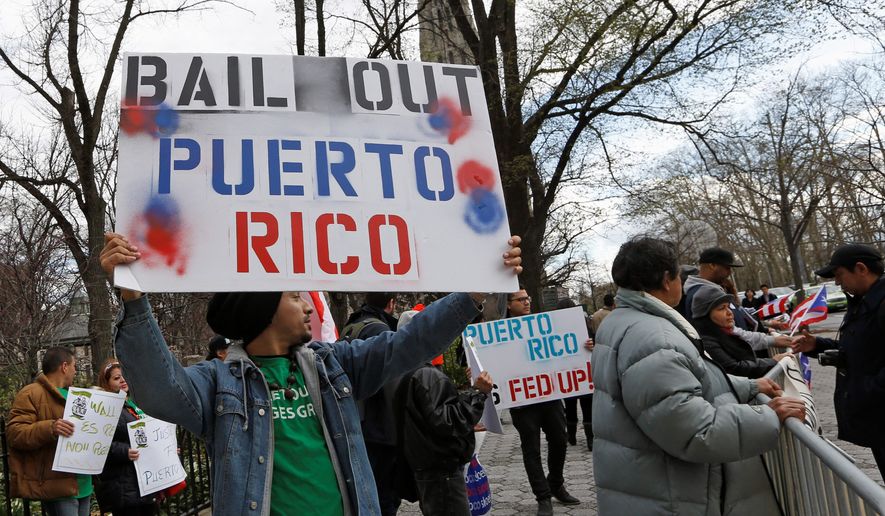House leaders urged members Thursday to rally behind their latest attempt to rescue Puerto Rico from its crippling $72 billion in bond debt, striking a deal to impose more fiscal oversight on the territory but insisting there will be no U.S. taxpayer bailout.
Both Speaker Paul D. Ryan and Minority Leader Nancy Pelosi endorsed the compromise they struck after weeks of negotiations with Treasury Secretary Jacob J. Lew, who expressed reservations but called it a “comprehensive and workable” solution.
“We got this bill exactly where we wanted it,” Mr. Ryan, Wisconsin Republican, said. “We wanted to make sure that the restructuring worked, and that the restructuring is done in a way that it prevents any taxpayer bailout, or some precedence that could affect the bond markets. And we’re very confident that we’ve achieved that.”
The bill would impose an oversight board to review Puerto Rico’s fiscal decisions, and ensure that it makes the reforms necessary to reach financial solvency. But Republicans agreed to tweak the way the oversight board members are appointed, and dropped a provision Democrats and environmentalists disliked that would have transferred land on Vieques Island.
Mr. Ryan insisted the bill is not a “bailout,” and will ensure taxpayers don’t end up on the hook for the island’s mistakes.
Yet lawmakers in both parties withheld their support, saying they need to evaluate whether the bill is unfair to creditors or islanders who are reeling from cuts to social services.
SEE ALSO: Judge orders ‘intentionally deceptive’ DOJ lawyers to take remedial ethics classes
Puerto Rico has already defaulted on $370 million in bond payments, and it faces a $1 billion payment on July 1, ratcheting up pressure on Congress to act.
For months, the Natural Resources Committee had been trying to reach a deal. An earlier draft from Chairman Rob Bishop, Utah Republican, drew opposition from Democrats.
Democrats framed the new bill as a breakthrough, even if they didn’t get everything they wanted. Mrs. Pelosi said she failed to remove provisions that could lower the island’s minimum wage or change overtime rules, but noted those provisions are now “less harmful than originally proposed.”
The White House also reacted positively, saying it is imperative that both chambers agree on a product that Mr. Obama can sign.
“We urge members of Congress in both parties to stand firm against the special interests attempting to undermine this essential legislation,” White House press secretary Josh Earnest said.
But Heritage Action, a conservative pressure group, threw cold water on the bill, saying it didn’t appear to move in a “conservative direction” and failed to “remain neutral in the tussle among creditors.”
SEE ALSO: Bob Gates blasts Obama for deceiving public on role of combat troops in Iraq and Syria
Conservatives worry that some bondholders would be forced to swallow a bad deal through restructuring mechanisms in the bill, should voluntary negotiations fail. That would set a bad precedent for states that overextend themselves and seek help, they say.
“Potentially, what could happen was that bondholders could be left holding the bag, and pensioners — people who’ve gotten these very lavish pensions — and unions could come out whole,” said Rep. John Fleming, Louisiana Republican. “Funding those things is what helped get this territory into problems.
• Tom Howell Jr. can be reached at thowell@washingtontimes.com.




Please read our comment policy before commenting.